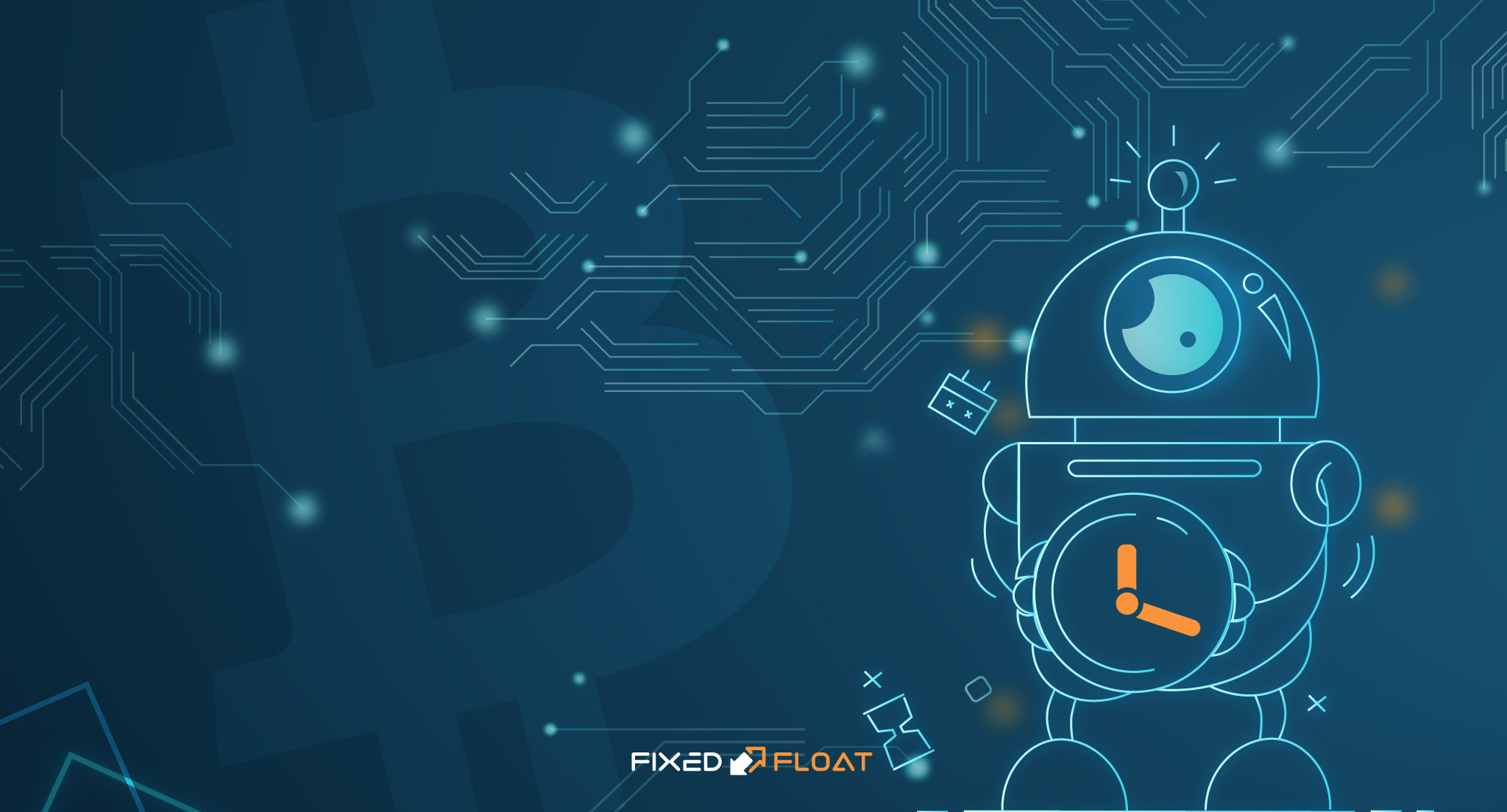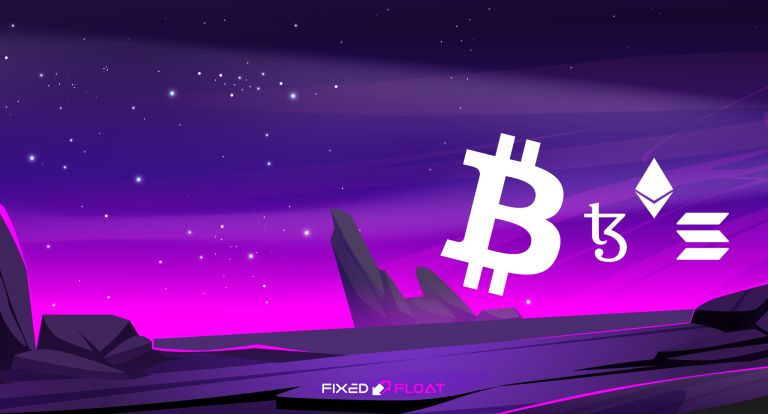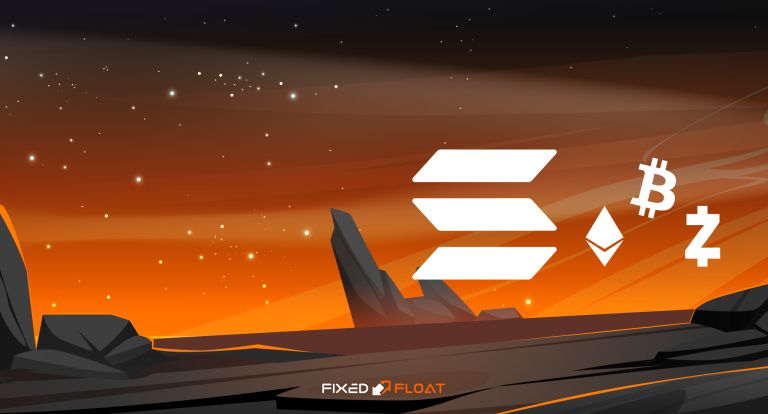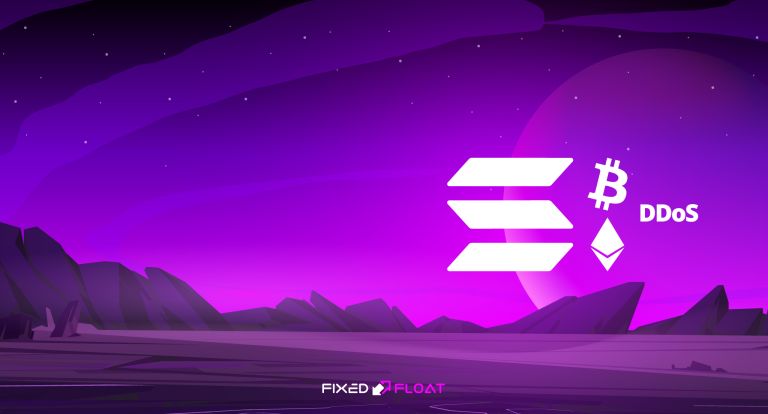Bitcoin transaction speed depends on three factors:
-
Bitcoin transaction size — a transaction in the Bitcoin network is a set of binary data that includes data on where they came from (number of inputs) and where they are sent (number of outputs).
-
Fee — that you pay to the miners for processing and inclusion in the block of your transaction.
-
Bitcoin network congestion level — it often happens that due to a sharp jump in the exchange rate, everyone starts sending transactions and the Bitcoin network becomes clogged, fees increase, and many transactions simply get up. Remember that several thousand transactions can be sent at the same time, and the Bitcoin network bandwidth is 7 transactions per second.
It is IMPOSSIBLE to calculate the exact time of transaction confirmation
The problem of calculating the transaction confirmation time mainly consists in the inconsistency of the period of the release of new blocks. If the blocks came out exactly every 10 minutes (even with an error of 1-2 minutes), then it would be possible to relatively accurately estimate the time after which the transaction would have 1 confirmation. In reality, Bitcoin blocks can come out with a period of 1 minute to 2 hours and the number of new transactions during this period can arrive more, which will greatly increase the load on the network.
Even when sending a transaction with a high fee, no one can be sure that in 10-20 minutes this fee will not cease to be relevant. Anyone can fall into this situation: both the sender and the recipient. Using Bitcoin, you need to understand how the network works and accept the rules of its operation.
How to calculate the approximate time of receipt of a bitcoin transaction?
If you sent a transaction and it still has not been confirmed, most likely it is in the "queue" — the Bitcoin mempool and expects the miners to include it in the block. The position in the mempool depends on what fee (fee per byte) you sent your transaction to — the higher the commission, the faster your transaction will go.
To predict how long your transaction will be confirmed, go to the site of the explorer blockchair.com, enter the transaction identifier (TXID, hash). Let's give an example, for a transaction with hash:b7f1813807462650e521b8d98a5da4fee9cfb80347cfefad96172e9f4ec64275
To begin with, we will collect all the necessary data for the calculation:
-
In the screenshot below, we see that our transaction is in the Bitcoin mempool at 1676 place out of 9495 (priority 1676/9495) and the commission (fee per byte) is 16 satoshi.
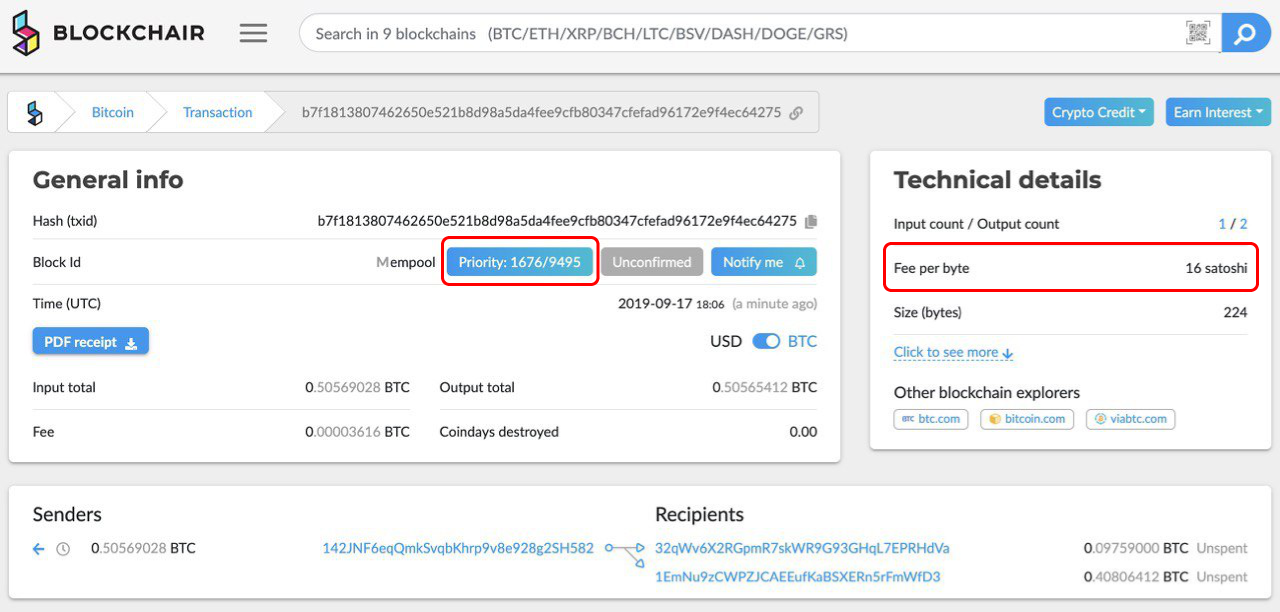
-
The average exit time of one block in the Bitcoin network is 10 minutes.
-
The average number of transactions that can be included in the Bitcoin block is 2500.
So, we carry out the calculation: The number 1676 (the priority of our transaction in the Bitcoin mempool) is less than the number 2500 (the total number of transactions in the Bitcoin block), this means that our transaction will take place in the next block, or in 10 minutes.
In practice, the priority of a transaction is constantly changing, because more and more new transactions appear on the network. And since no one can predict the time of the release of a new block, it is simply impossible to calculate the exact time of transaction confirmation.
